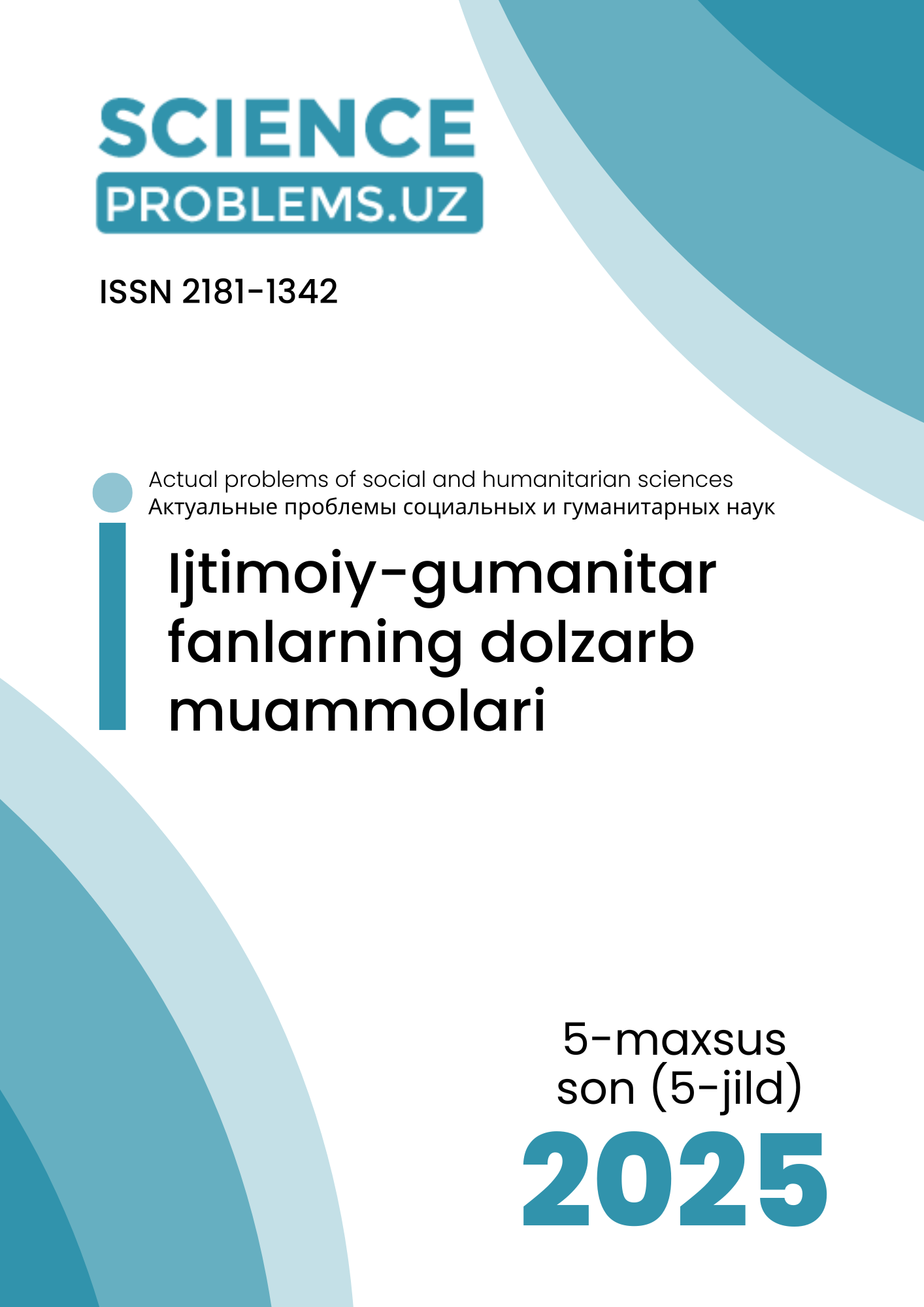TRANSFORMATION OF EXISTING PEDAGOGICAL METHODS IN KARAKALPAK FOLK TRADITIONS IN THE CONDITIONS OF DIGITAL ECONOMY
DOI:
https://doi.org/10.47390/SPR1342V5SI5Y2025N41Keywords:
digital economy, Karakalpak folk traditions, pedagogical methods, transformation, educational innovations.Abstract
This article will study the process of transforming pedagogical methods in the traditions of the Karakalpak people in the conditions of a digital economy. The impact of digital technologies on education, the need to modernize traditional pedagogical methods and the introduction of new educational methodologies will be considered. The article will help to develop new approaches to education in the future, analyzing the changes in the culture and educational system of Karakalpak.
References
1. J. stommel, Decoding digital pedagogy. Pt. 2: (Un) Mapping the terrain., USA, 2013.
2. Kholikova, R. E., Narkulov, D. T., Abilov, U. M., Khudoykulov, A. B., Karimov, N. R., Iskandarov, S. A., ... & Niyozova, N. S. (2023). Impact of Renaissances in The History of Uzbekistan And Causative Factors of The Third Renaissance. Journal of Law and Sustainable Development, 11(12), e2518-e2518.
3. Norkulov, D. T., Narkulov, S. D., & Iskandarov Sh, A. (2022). Alimova SG, Pardayev AA Umarova FS, Khudoykulov AB THE ROLE OF PHILOSOPHICAL THINKING AND PHILOSOPHICAL KNOWLEDGE IN UNDERSTANDING NATIONAL IDENTITY. ASEAN Journal on Science & Technology for Development, 39(4), 605-613.
4. Misri, M. E. (2024, December). Binary Water Wheel Plant Algorithm with Soft Gated Recurrent Unit for Software Defect Prediction. In 2024 4th International Conference on Mobile Networks and Wireless Communications (ICMNWC) (pp. 1-5). IEEE.








